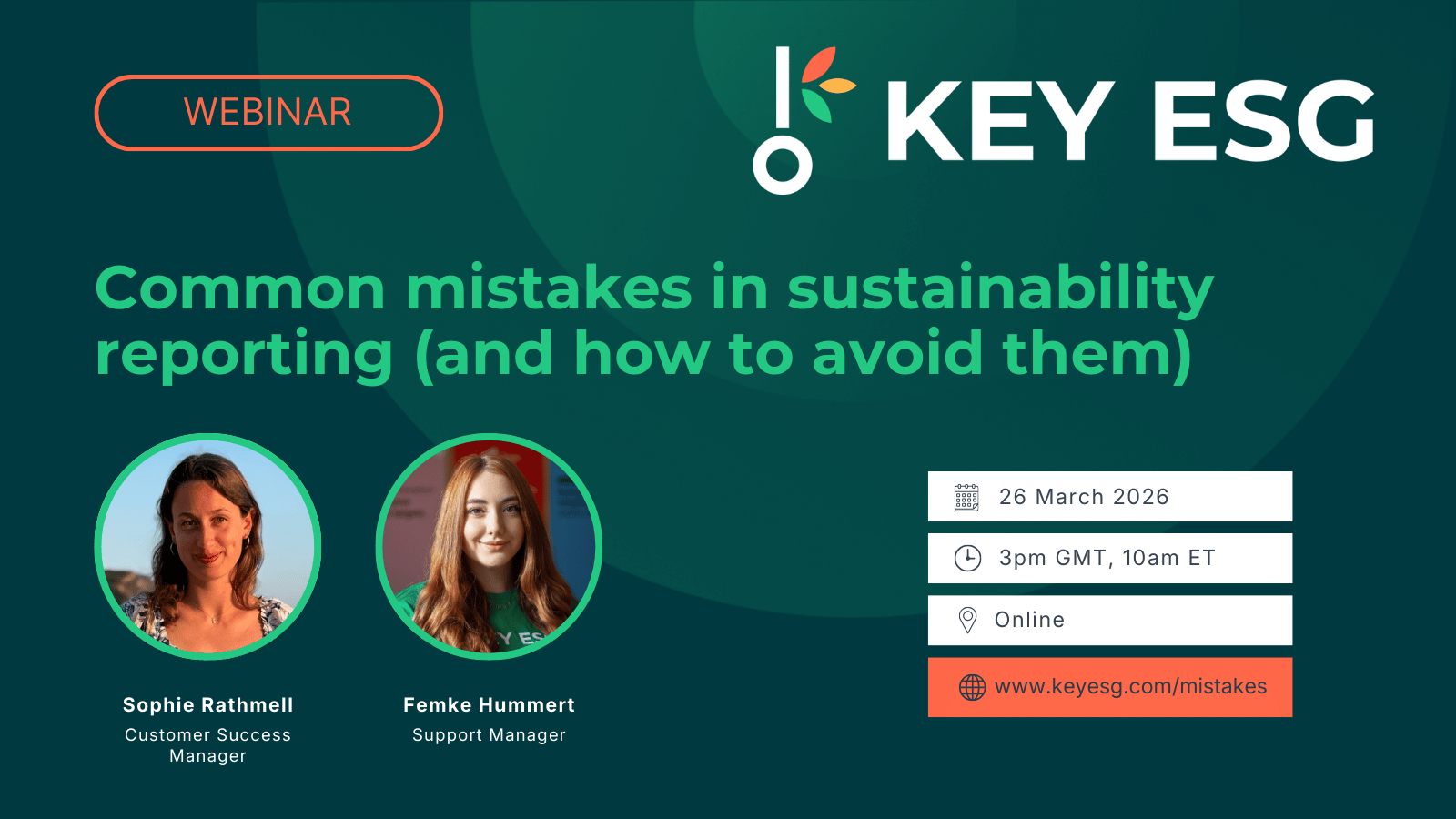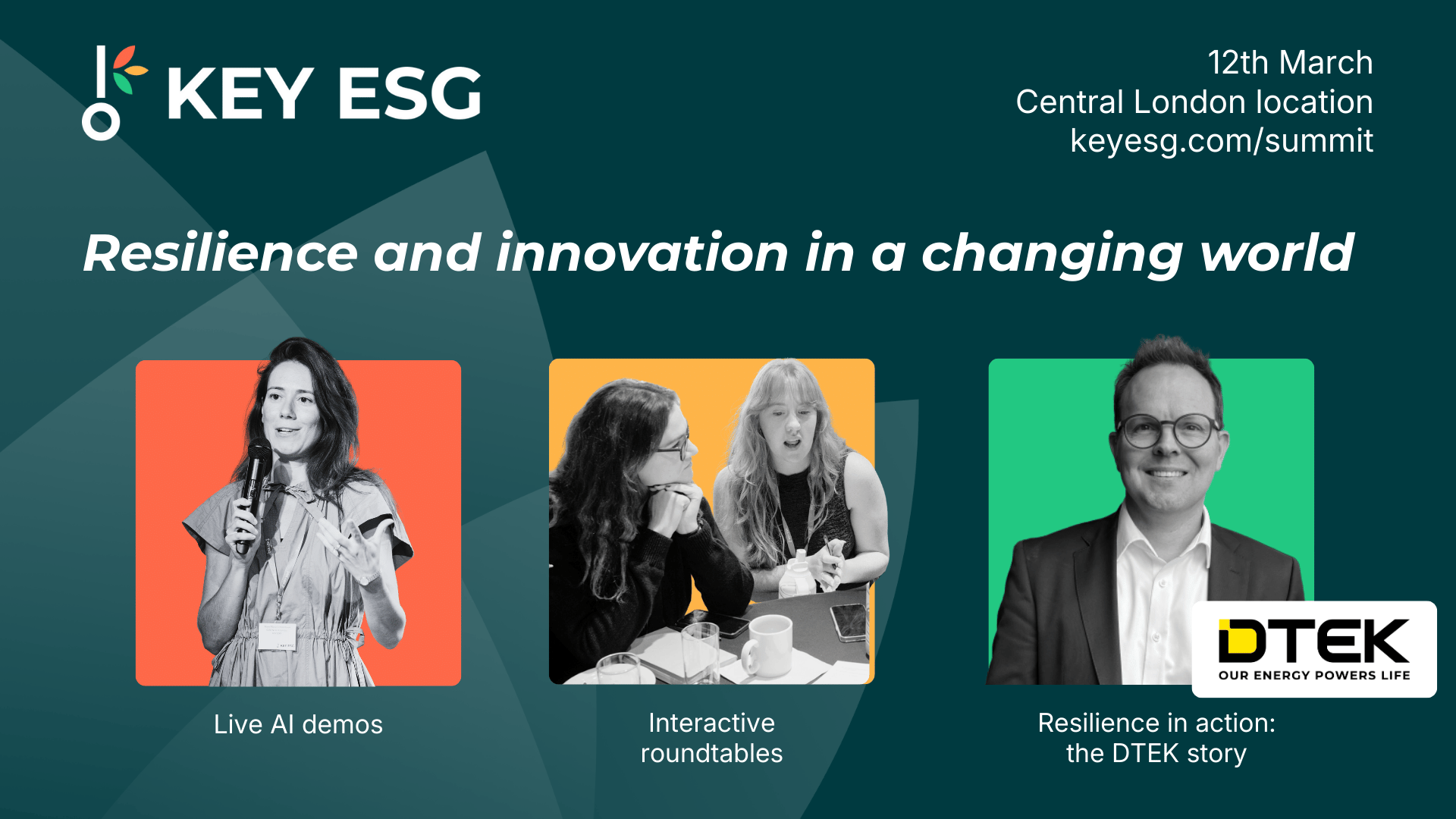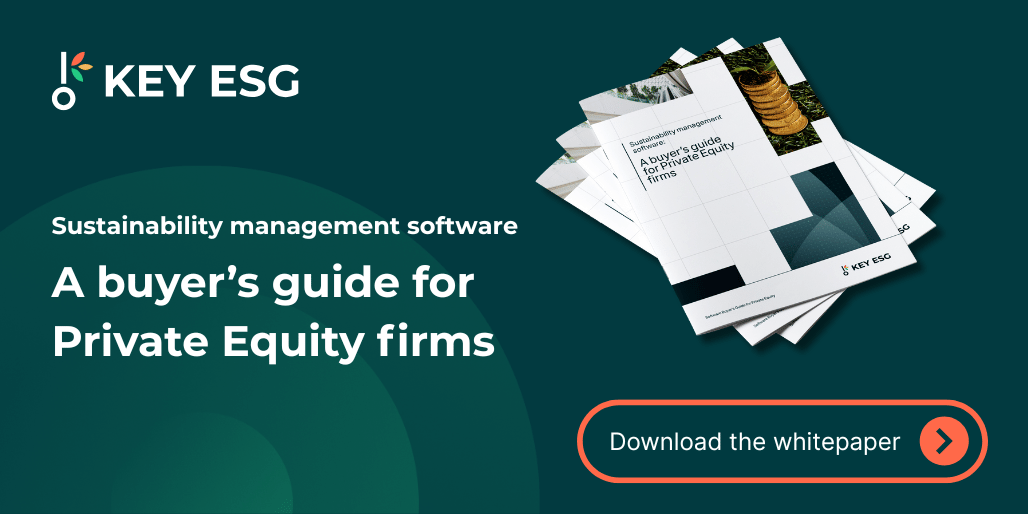Sustainable transition is currently a hot topic for venture capitalists (VCs). We hear about climate change, net zero, and sustainability in the news every day. So it's not surprising that governments and businesses are making efforts to strive to implement more sustainable processes. It doesn't matter if they directly solve the climate crisis or put forward a product that aligns with the objective of limiting global warming. No new business can ignore the injunction of reporting on sustainability.
Many VCs opt to make sustainable changes to their business operations simply because they care about the environment. However, regardless of their degree of personal investment, as governing bodies begin to regulate ESG metrics, evidencing sustainability becomes essential. With VCs often being minority investors, implementing ESG management is usually considered challenging by the industry. Yet, their early-stage focus means that the value creation potential of good ESG management can be multiplied.
In this article, we provide practical insights on how VCs can build effective ESG strategies and their benefits for the business.
What are the main ESG themes that VCs are considering?
The ESG themes at the forefront of investment conversations include:
- Climate risk
- Net zero
- Diversity and Inclusion
However, the latest regulatory rulings incorporate many other areas of concern. All sectors and industries have been impacted by these new regulations and the momentum to incorporate ESG has been particularly incentivised within the VC community through initiatives such as ESG in VC and ESG_VC. These incentives have been put in place because VC-backed companies create lots of jobs and, with so many people involved, their ESG metrics can make more of a difference. In spite of this, VC companies have often lagged behind other asset classes when it comes to ESG.
These initiatives are characterised by their collaborative approach. Through these forums, multiple VC businesses from across Europe are taking action, working together to identify solutions to the challenges they collectively face.
Behind this momentum is the belief that better ESG management will create returns for investors. That it can develop solutions to meet society’s challenges. And ultimately that it can set early-stage businesses and startups up for long-term sustainable success.
Why is ESG so important for early-stage VC companies
Established firms have established rules. This means that making sustainable transitions can be more difficult. New methods require firms to break old habits and re-learn the operational methods that they’re used to.
When you weave a focus on ESG into the fabric of the management and operational culture from the start, it is much easier for everyone to embrace it. Anna Ott, VP of People and ESG at HV Capital, provides guidelines for VCs when writing ESG policies:
How to write an ESG policy for a VC fund:
- Get everyone in a room.
- Do some soul searching
- Map out your processes and start integrating ESG
- Ensure the investment team is on board
- Review, iterate, and shorten
- Consult stakeholders regularly
- Don’t be afraid to be emotional and bold
It is rather telling that all of Anna’s policy guidelines involve people or communication to some degree. Read the full article here. Getting the team onboard from the outset makes ESG implementation much easier to sustain in the long run, as ESG-conscious ways of thinking become the established norm.
If an investing entrepreneur is building processes and selecting systems anyway, they might as well sow the seed for good ESG management from the start. This ensures that a partner won't need to overhaul the systems and strategies of the portfolio a year down the line.
The ESG due diligence phase is the perfect opportunity to enhance decision-making in early and growth stage venture capital. Due diligence takes a long-term and holistic look at the company. This long-term approach is vital for venture capital, due to the longer-term time horizons of investments. This approach can help VCs to focus on the material issues that could have a large impact on the company in the future.
For entrepreneurs funding a startup, this research is vital. It sets out the firm's strategy going forward and allows funders to raise concerns and identify opportunities.
Investors value ESG
Alongside the ethical considerations related to sustainability, ESG proficiency and high levels of ESG expertise can increase a firm's appeal. Leaders in responsible investing therefore view ESG optimisation as an opportunity for value creation.
Investors will often have several potential investments on the table at any given time. A firm with experience implementing good ESG practices will set itself apart from others within its industry. Investing in ESG development could therefore make your company more appealing to potential investors.
In many cases, investors will offer to pay a high premium to acquire a company that is on track to meet its ESG target. Regulations are constantly shifting, and a solid ESG standing means a firm is less of a risk and will be better equipped to deal with future changes in legislation.
Consumers value ESG
VCs seek to scale the businesses they invest in, so getting support from customers and other people within the business network is essential. Consumers are increasingly conscious of their purchase impact and are more willing to support and back a company that cares about its ESG performance. Especially with regard to carbon footprint, diversity and inclusion (D&I), or human rights in supply chains.
Investors will value a firm that appeals to its target demographic through its ESG ethos, as this facilitates growth.
A solid ESG strategy can also lead to a more innovative team of employees. Young talent in particular cares about ESG, and being able to back up ESG claims can help you win the war for talent. Again, this enables growth and value creation.
Where to next?
Whether you are a minority or majority investor might mean less than you think. If management teams are open to ESG management then they may be grateful for the support. Especially if you are providing them with a blueprint of what to do. Investors with majority stakes sometimes struggle to get ESG right if it's not a priority to the management team. This is why establishing the importance of ESG in the early stages is vital. It makes it far easier for the company to scale up.
As ESG continues to become further integrated in venture capital, we'll continue to share updates via our blog and our LinkedIn page.
For further support and to find out how KEY ESG can help you on your ESG journey, get in touch with a member of our team.
Sustainable transition is currently a hot topic for venture capitalists (VCs). We hear about climate change, net zero, and sustainability in the news every day. So it's not surprising that governments and businesses are making efforts to strive to implement more sustainable processes. It doesn't matter if they directly solve the climate crisis or put forward a product that aligns with the objective of limiting global warming. No new business can ignore the injunction of reporting on sustainability.
Many VCs opt to make sustainable changes to their business operations simply because they care about the environment. However, regardless of their degree of personal investment, as governing bodies begin to regulate ESG metrics, evidencing sustainability becomes essential. With VCs often being minority investors, implementing ESG management is usually considered challenging by the industry. Yet, their early-stage focus means that the value creation potential of good ESG management can be multiplied.
In this article, we provide practical insights on how VCs can build effective ESG strategies and their benefits for the business.
What are the main ESG themes that VCs are considering?
The ESG themes at the forefront of investment conversations include:
- Climate risk
- Net zero
- Diversity and Inclusion
However, the latest regulatory rulings incorporate many other areas of concern. All sectors and industries have been impacted by these new regulations and the momentum to incorporate ESG has been particularly incentivised within the VC community through initiatives such as ESG in VC and ESG_VC. These incentives have been put in place because VC-backed companies create lots of jobs and, with so many people involved, their ESG metrics can make more of a difference. In spite of this, VC companies have often lagged behind other asset classes when it comes to ESG.
These initiatives are characterised by their collaborative approach. Through these forums, multiple VC businesses from across Europe are taking action, working together to identify solutions to the challenges they collectively face.
Behind this momentum is the belief that better ESG management will create returns for investors. That it can develop solutions to meet society’s challenges. And ultimately that it can set early-stage businesses and startups up for long-term sustainable success.
Why is ESG so important for early-stage VC companies
Established firms have established rules. This means that making sustainable transitions can be more difficult. New methods require firms to break old habits and re-learn the operational methods that they’re used to.
When you weave a focus on ESG into the fabric of the management and operational culture from the start, it is much easier for everyone to embrace it. Anna Ott, VP of People and ESG at HV Capital, provides guidelines for VCs when writing ESG policies:
How to write an ESG policy for a VC fund:
- Get everyone in a room.
- Do some soul searching
- Map out your processes and start integrating ESG
- Ensure the investment team is on board
- Review, iterate, and shorten
- Consult stakeholders regularly
- Don’t be afraid to be emotional and bold
It is rather telling that all of Anna’s policy guidelines involve people or communication to some degree. Read the full article here. Getting the team onboard from the outset makes ESG implementation much easier to sustain in the long run, as ESG-conscious ways of thinking become the established norm.
If an investing entrepreneur is building processes and selecting systems anyway, they might as well sow the seed for good ESG management from the start. This ensures that a partner won't need to overhaul the systems and strategies of the portfolio a year down the line.
The ESG due diligence phase is the perfect opportunity to enhance decision-making in early and growth stage venture capital. Due diligence takes a long-term and holistic look at the company. This long-term approach is vital for venture capital, due to the longer-term time horizons of investments. This approach can help VCs to focus on the material issues that could have a large impact on the company in the future.
For entrepreneurs funding a startup, this research is vital. It sets out the firm's strategy going forward and allows funders to raise concerns and identify opportunities.
Investors value ESG
Alongside the ethical considerations related to sustainability, ESG proficiency and high levels of ESG expertise can increase a firm's appeal. Leaders in responsible investing therefore view ESG optimisation as an opportunity for value creation.
Investors will often have several potential investments on the table at any given time. A firm with experience implementing good ESG practices will set itself apart from others within its industry. Investing in ESG development could therefore make your company more appealing to potential investors.
In many cases, investors will offer to pay a high premium to acquire a company that is on track to meet its ESG target. Regulations are constantly shifting, and a solid ESG standing means a firm is less of a risk and will be better equipped to deal with future changes in legislation.
Consumers value ESG
VCs seek to scale the businesses they invest in, so getting support from customers and other people within the business network is essential. Consumers are increasingly conscious of their purchase impact and are more willing to support and back a company that cares about its ESG performance. Especially with regard to carbon footprint, diversity and inclusion (D&I), or human rights in supply chains.
Investors will value a firm that appeals to its target demographic through its ESG ethos, as this facilitates growth.
A solid ESG strategy can also lead to a more innovative team of employees. Young talent in particular cares about ESG, and being able to back up ESG claims can help you win the war for talent. Again, this enables growth and value creation.
Where to next?
Whether you are a minority or majority investor might mean less than you think. If management teams are open to ESG management then they may be grateful for the support. Especially if you are providing them with a blueprint of what to do. Investors with majority stakes sometimes struggle to get ESG right if it's not a priority to the management team. This is why establishing the importance of ESG in the early stages is vital. It makes it far easier for the company to scale up.
As ESG continues to become further integrated in venture capital, we'll continue to share updates via our blog and our LinkedIn page.
For further support and to find out how KEY ESG can help you on your ESG journey, get in touch with a member of our team.


.avif)



